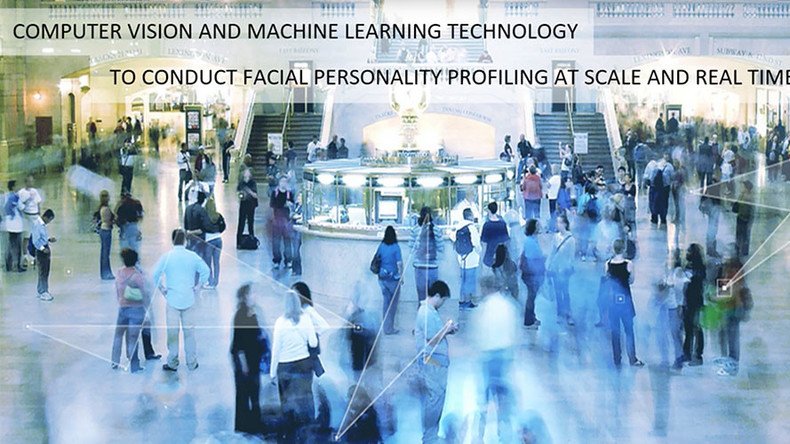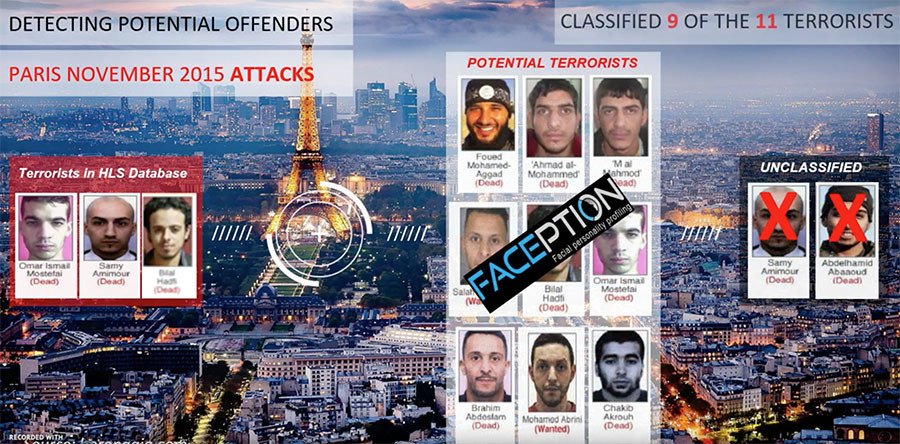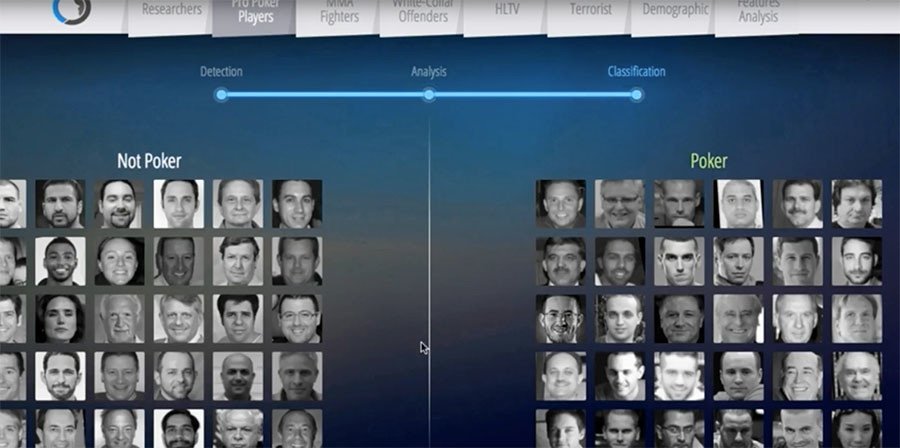Facial profiling: Israeli start-up says its tech can detect terrorists from just looking at a face

Israeli start-up Faception is claiming it can spot terrorists by simply analyzing their faces and says it is working with “a leading Homeland Security Agency” to identify potential threats.
The company, founded in 2014, uses “computer vision and machine learning technology” to profile people from just a facial image and says it can reveal a range of personality traits and types.
So far it has built 15 different classifiers, including extrovert, genius, academic researcher, professional poker players, bingo player, brand promoter, white collar offender, paedophile and terrorist. However Faception notes on its website that this is customizable and a relevant classifier could be built if the desired behaviour originates from a person’s DNA.
DNA is the key, according to company CEO Shai Gilboa. “Our personality is determined by our DNA and reflected in our face. It’s a kind of signal,” he told The Washington Post.
The company also relies on ‘social and life science research’ to back up its considerable claim, citing research from Edinburgh University exploring the impact genetics has on personality traits by studying identical and non-identical twins
Homeland security and public safety are the primary focus of Faception, although the technology is also applicable to financial services, marketing and artificial intelligence.

A marketing pitch video explains that the technology goes beyond facial recognition and can predict terrorists. It references last year’s Paris attacks as an example of how the technology can work.
“Only three of the 11 terrorists had a previous record, our technology classified nine of those as potential terrorists with no prior knowledge, that’s why we’re working with the leading Homeland Security Agency,” the video claims.
It also noted its success at a poker tournament where two of the four players it predicted as the best out of 50 made it into the final. It compared the photos of the amateur players against a Faception database of professional poker players to get those results.

Gilboa told The Washington Post accuracy is about 80 percent, meaning one in five could be incorrectly classified as a terrorist or paedophile.
The practice has echoes of phrenology, a long debunked, 19th-century pseudoscience based on the theory that personality traits could be predicted by measurements of the skull and used to justify racism in its time.
Experts are also questioning the ethical implications of the practice and if it is merely pseudoscience computerized.
“The evidence that there is accuracy in these judgments is extremely weak,” Alexander Todorov, a Princeton psychology professor whose research includes facial perception told The Washington Post. “Just when we thought that physiognomy ended 100 years ago. Oh, well.”












